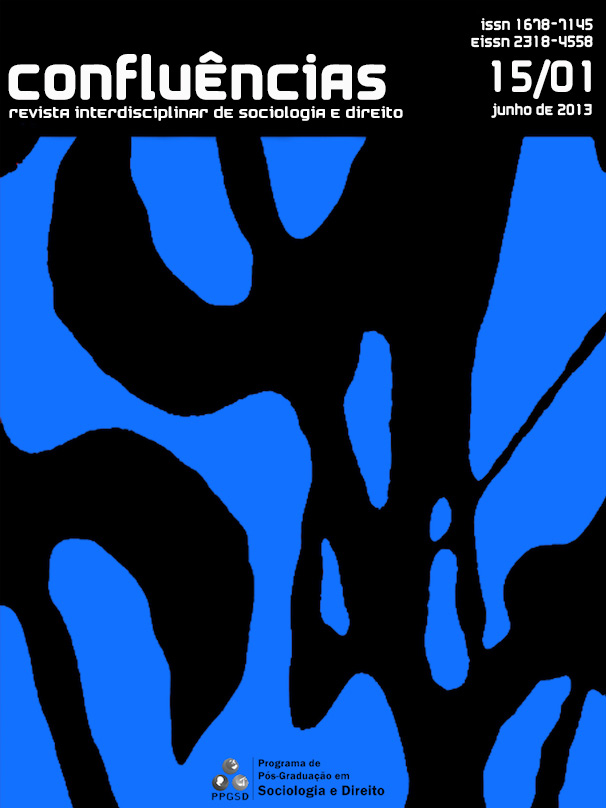A TEORIA DA INSTITUIÇÃO DO ESTADO E SUA AUTONOMIA RELATIVA: DE MARX E GRAMSCI A MAURICE HARIOU
DOI:
https://doi.org/10.22409/conflu15i1.p317Palavras-chave:
Estado, Autonomia relativa, Instituição.Resumo
O Estado não se resume à assertiva de que o seu governo é um balcão de negócios da burguesia. O Estado representa a centralização da violência pela dominação capitalista. A partir destas características, é possível a separação desse mesmo órgão da sociedade civil. Sendo um aparelho complexo e burocrático, revela a sua face de autonomia relativa, cujas atividades nem sempre são passíveis de total controle. No campo jurídico, Maurice Hariou é o precursor da teoria da instituição, no sentido de que o Direito advém do comportamento consuetudinário predominante dos diversos agrupamentos sociais. E os detentores do poder nessas organizações sociais, ao estabelecerem a ordem, têm interesse de permanecer no poder por meio de suas ideias diretoras. No mundo moderno, as ideias diretoras se constituem nas ideias predominantes da indústria, do comércio e setores financeiros. Desta forma, o Estado se constitui como a instituição de poder.Downloads
Downloads
Publicado
Edição
Seção
Licença
Os autores mantêm os direitos autorais e concedem à revista o direito de primeira publicação, com o trabalho simultaneamente licenciado sob a Licença Creative Commons Attribution que permite o compartilhamento do trabalho com reconhecimento da autoria e publicação inicial nesta revista. Têm autorização para assumir contratos adicionais separadamente, para distribuição não-exclusiva da versão do trabalho publicada nesta revista (ex.: publicar em repositório institucional ou como capítulo de livro), com reconhecimento de autoria e publicação inicial nesta revista. Possuem permissão e são estimulados a publicar e distribuir seu trabalho online (ex.: em repositórios institucionais ou na sua página pessoal) a qualquer ponto antes ou durante o processo editorial, já que isso pode gerar alterações produtivas, bem como aumentar o impacto e a citação do trabalho publicado.







